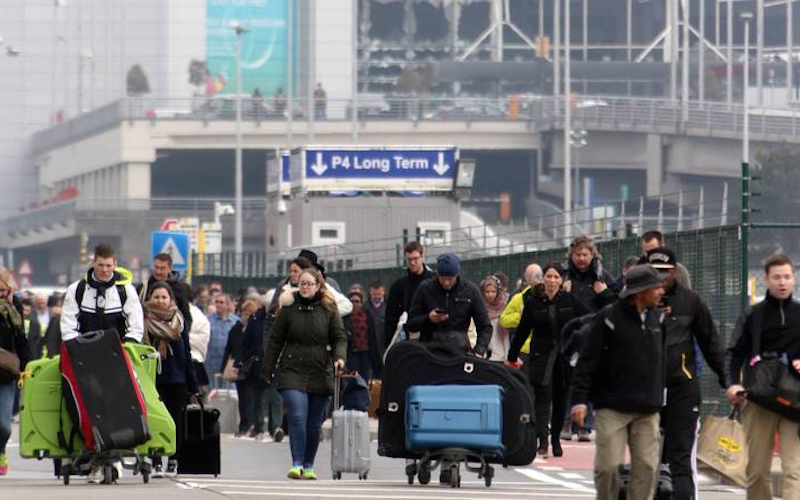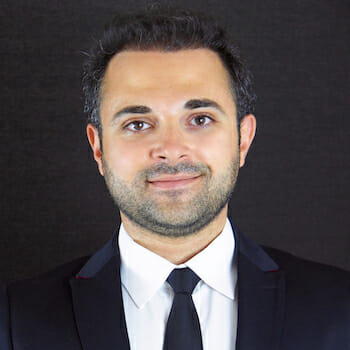
Terrorist Attacks in Brussels: A Clash of What?
Here we go again. Recent terrorist attacks against another European capital city in less than a year shake the core of world politics. It is worth noting that terrorist attacks are not only against European states, but against other countries, most notably Turkey and Indonesia. Is it a clash of cultures, religions, or it is merely politics? How do we keep serving Daesh (Islamic State)?
What to Expect
The blasts are expected to generate an international response expressing disproval of violence and terrorism, similar to those that followed the tragic attack against Charlie Hebdo in January 2015 and the terrorist attacks in Paris more recently.
It is also anticipated that there will be condemnation and calls for solidarity against terrorism by a spectrum of Muslim dignitaries in and outside Europe and by world political leaders, including Arabs.
Although some of the victims of the attacks at Brussels airport and the Metro station might be Muslims, this doesn’t change the fact that Daesh-affiliated madmen call themselves Muslims. This is going to be one of the leading arguments for the far-right populists in Europe, who are more likely to shift the debate towards issues of failed integration, clash of cultures, threats against European “Christian” values, Islamization of Europe etc. In other words, it is expected to culturalize the discourse around the crisis of terrorism in Europe and the world over.
It is also more likely that, in order to enforce security, western states will increase their military response against the Islamic State, as if it is the sole reason behind these assaults.
Rifts in European societies, a result of alienation and victimization, increased security measures, the rise of far-right voices and the continuation of old, yet unsuccessful solutions of military power to combat terrorism are going to be posited. Daesh is baiting the world with its random attacks, and it seems to be working.
Culturalization of Discourses Serves the Bait
Culturalization of discourses means to look for evidence and explanations in the culture of the perpetrators. Culturalization will dominate the discourse although most recent terrorist attacks in Europe were committed by individuals born and brought up in the West.
When culturalization does not provide a satisfactory explanation , religion, often used interchangeably with culture, comes into play. Discourse about the Brussels attacks becomes Islamized to address issues of Islam, integration, conflicting values etc. However, the role of culture and religion cannot be marginalized nor excessively emphasized when analyzing political, economic and military relations.
In theory, increasingly there is a tendency to make inferences about others’ disposition, traits and characteristics on the basis of observation. In other words, through observing the behavior of out-group members, we tend to draw conclusions about others’ characteristics and find explanations for why they behave the way they do. This is a “perceptual error” and not sophisticated enough to produce a satisfying explanation because environment is ignored as are the preconceptions of those passing judgement.
Culturalization of discourses, accompanied by a lack of knowledge, leads to generalizations and stereotyping patterns against the collective other.
“Instead of looking at ethno-national cultures and religions as identity difference-lines, there is an urgent need to understand them as politically embedded and historically changeable phenomena,” explains Kira Kosnick, a professor at the institute of sociology at the Goethe University of Frankfurt.
Controversy of Denial
Injustice, corruption and chaos in the world provide a perfect environment for terrorism. However, fighting terrorism starts when western and Muslim-majority countries acknowledge the fact that the problem mainly lies in religious and political governance. Every time a criminal action happens, Muslim individuals become the first victims not only in the western world but also across the regions of West Asia, North Africa and the Middle East ie Iraq, Syria and Yemen. But why is it a controversy of denial and why does it serve Daesh?
One level of denial is the Islamic clerics who incite violence and the same clerics condemn those who carry out violent acts. On a second level of denial, Arab political leaders support freedom of speech condemning terrorism and extremism in the West but they choose to do otherwise in their own countries. On a third level of denial, western countries base their relationship with states in the region of West Asia and North Africa on security, stability and economic calculations, turning a blind eye to all the violations and atrocities perpetrated by their authoritarian allies. On a forth level of denial, while the West has an unclear position concerning protracted conflicts in the heart of the Muslim majority countries, it has built strong ties with states known to export extremism and sectarianism such as Saudi Arabia and Iran.
This controversy emerges when actors are unable or unwilling to improve people’s lives in the region. Consequently, extremist groups find a fertile environment for recruitment in these structures.
Solutions in the Age of Daesh
Solutions to reform Islamic thinking necessitate the willingness of political and religious leadership to stop instrumentalizing religion when convenient.
The problem is not that some terrorists joined or learned from Daesh but rather why they joined and supported Daesh, or Al-Qaeda in the first place. Radicalization is a process that takes several years to crystalize. There is little evidence that people become radicalized because of a three-month visit to Daesh. But evidence suggests that many of those who join Daesh are already prepared to embrace, learn and adopt an extremist ideology.
The newcomers to Daesh or any other terrorist organization are more likely to have developed their radical views in their home countries maybe in schools, at home or through religious books, Islamic interpretations or religious sessions. Therefore, the reasons underlying violence could come from the books held most sacred by Muslims.
We all know that attacks such as the ones in Brussels and elsewhere are not going to destroy the victimized states. Yet, there are consequences to these attacks. They mainly sharpen the rift between Muslims and non-Muslims in western societies, although an overwhelming majority of Muslims in the West might be willing to cooperate to eliminate any risks to their home countries.
Increased alienation allows Daesh to recruit the most marginalized and distressed individuals. Against this background, Daesh offers them the illusion of being a part of a great project in the name of God.

